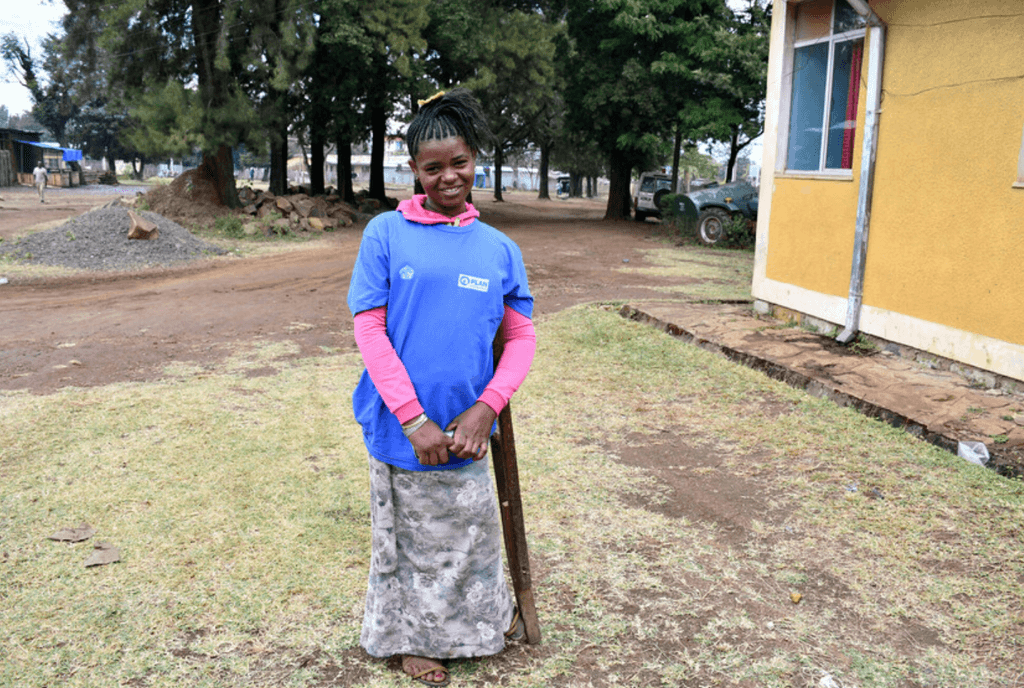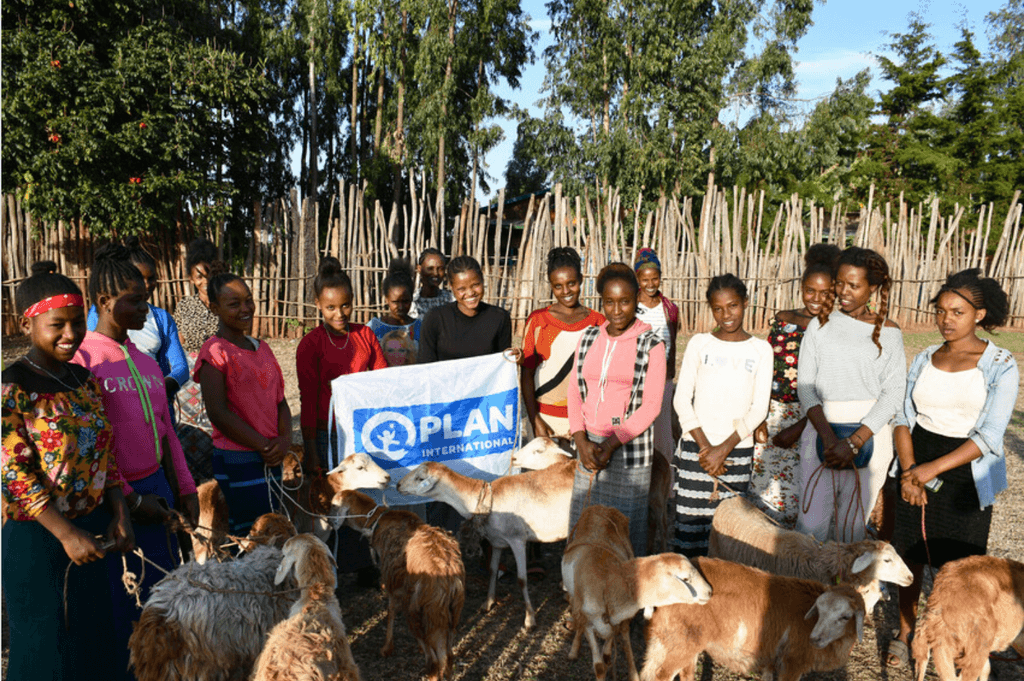Tamenech: My future as a girl leader
Seventeen-year-old Tamenech is a member of the student parliament at her school in Ethiopia, something she never thought possible when she was younger as a physical disability made walking hard and often prevented her from going to school.

“The members of the parliament listened to me as if I was in a dream. It made me so glad to be part of the student community.”
As a young girl, Tamenech often felt isolated from her friends and community members.
“The peer pressure and desire to be like everyone else was tough and there were times when I felt singled out due to my disability.”
But things started to change when Tamenech joined a project at her school that seeks to advance gender equality for adolescent girls and ensure equal access to education for all children with a particular focus on girls, people with disabilities and those living in rural areas.
“Before the project started, there was nowhere that students with disabilities were represented or encouraged to share their experiences and ask questions,” explains Tamenech. “Things are different now.”
Everything has changed for the better
“Teachers have become more aware of the need to speak about disability issues and they are committed to including us in all school life. It’s like everything changed, they become willing to engage with us, they started listening to our voices and began making changes to help us.”
The project aims to transform the underlying social norms that contribute to harmful practices and empower all adolescents to realise their right to Sexual and Reproductive Health and Rights (SRHR) related information, advice and services.
“We have become more engaged at school and elsewhere. I have started raising awareness about SRHR issues in the school and the community at any given opportunity and people listen,” Tamenech tells us.
“As a person with a physical disability, I struggled to find a way to convey my thoughts on the different abuses and traditional practices in our community. Now I am the member of the student parliament and I can share my thoughts out loud about disability and the need to include us. It has changed my life completely.”

With girls and women’s economic empowerment a contributing factor for elimination of gender inequality, the project has also provided Tamenech and other vulnerable youth with sheep to rear.
“This income generating activity will change me. I was so glad to attend the event to receive my sheep and my friends were so happy too.”
Evaluating impact
The My Future 2 project is being implemented in 30 schools and 9 health centers in Amhara and Oromia regions of Ethiopia – financed by Ministry of Foreign affairs of Finland through Plan International since January 2022 and will run until December 2025.
Boys and girls between the ages of 10 and 24 make up the majority of project participants, as do adolescents with disabilities, young women and girls who are survivors of gender-based violence, young women and girls who are out of school, young women and girls who work in the industrial park, and persons with disabilities. Parents and guardians, community members, community-based groups, faith-based organizations, and government sectors make up the indirect project participants.
Tamenech
“Teachers have become more aware of the need to speak about disability issues and they are committed to including us in all school life. It’s like everything changed, they become willing to engage with us, they started listening to our voices and began making changes to help us.”
To check on the effectiveness of the project, a total of 447 rapid interviews were conducted – 235 conducted in the Oromia area and 212 in the Amhara region—as well as 26 vignettes—14 in the Oromia region and 12 in the Amhara region—were conducted.
The results showing 50% of adolescents and young people are more aware of and want to combat gender stereotypes that are connected to their Sexual Reproductive Health and Rights (SRHR) with 89% of them saying they strongly agree that adolescents and young adults should make decisions about their relationships and sexuality.
After the project intervention, there was also an increase in the positive attitudes of parents, caregivers, and family members toward the sexual and reproductive health and rights of young people, as measured by the project.
In light of this, 24% of parents, guardians, and family members had favourable opinions on the SRHR of young people. Accordingly, 40% of parents and caregivers reported having positive parenting skills and being able to communicate when discussing SRHR issues, such as female genital mutilation.
60% of parents also support their daughters or sons’ use of contraceptives, even paying the associated costs with 59% of parents believing that women and girls should have the right to bodily autonomy and 54% of parents and caregivers believing that gender roles have changed.
Categories: Education, Sexual and reproductive health and rights, Youth empowerment


